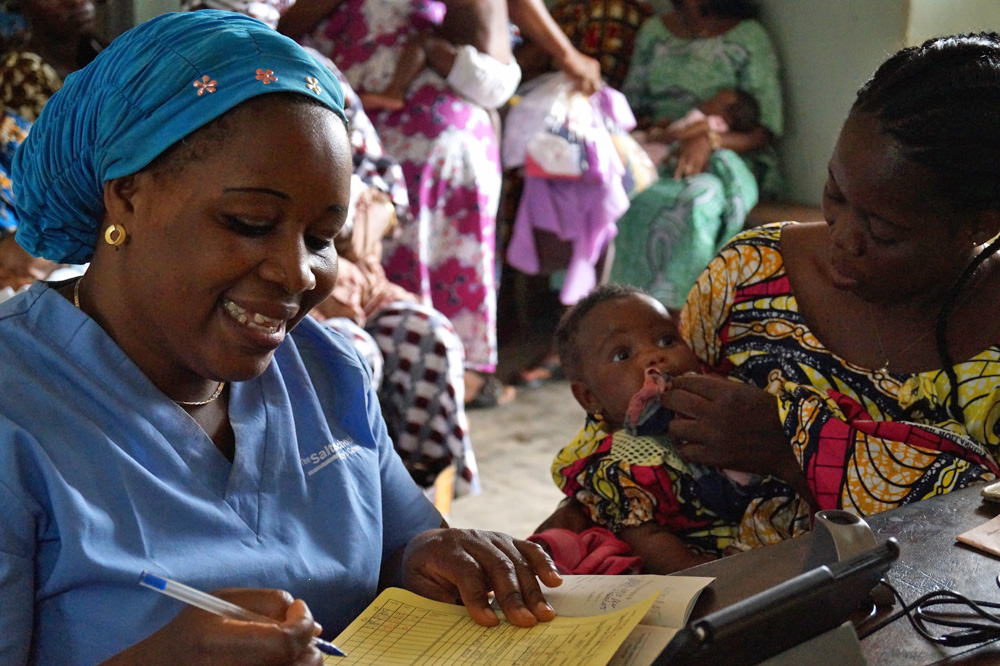Resource Tracking: Making the Most of Limited Health Resources
Worldwide, health systems are being asked to do more with less. In many countries, donor funds have stagnated or are declining. This sharp decline could have broad implications for the health sector— particularly those that rely heavily on donor resources. New and emerging threats, such as Zika and Ebola, are also testing weak and fragile health systems, such as those in Guinea and Liberia. And costly noncommunicable diseases, like diabetes and cancers, are on the rise in low- and middle-income countries.

Health worker at a clinic in Porto Novo, Benin. © 2013 L. Spigel, Courtesy of Photoshare
With the end of the MDGs and start of the new SDGS, momentum is growing for countries around the world to pursue Universal Health Coverage reforms and to expand affordable access to health care services, without risk of financial hardship, while facing real resource constraints in the aftermath of the global economic crisis.
In short, countries need to make their limited health resources go a long way. It is a financing challenge as well as a governance one. Countries cannot manage what they cannot measure; they need to measure their health spending – know where the money comes from, how much is spent and where, and how it can be spent more efficiently and equitably.
A new brief from the HFG Project, “Follow the Money: Making the Most of Limited Health Resources,” explains the importance of resource tracking in financing a country’s health sector, with a focus on Health Accounts. Health Accounts measure the “financial pulse” of national health systems by examining the total health spending in a country – including public, private, household, and donor expenditures. It is a particularly useful finance tool used to generate the evidence needed to inform health financing policy and track whether or not policies are working as intended. Health Accounts also track the amount of funds and their flow from one health care actor to another, such as the distribution of funds from the Ministry of Health to each government health provider.
Health Accounts provide a wealth of health spending data that can be used to negotiate increased financing for health, to highlight opportunities for greater pooling of health resources to reduce catastrophic spending, to inform efficiency discussions and to benchmark against other countries or global initiatives. The information obtained after analyzing Health Accounts data can be then used to make better resource allocation decisions, change the status of priority areas, increase the government investment in health, monitor progress toward spending goals, or hold stakeholders accountable.
Download the briefResource Tracking Resource Tracking Resource Tracking Resource Tracking



